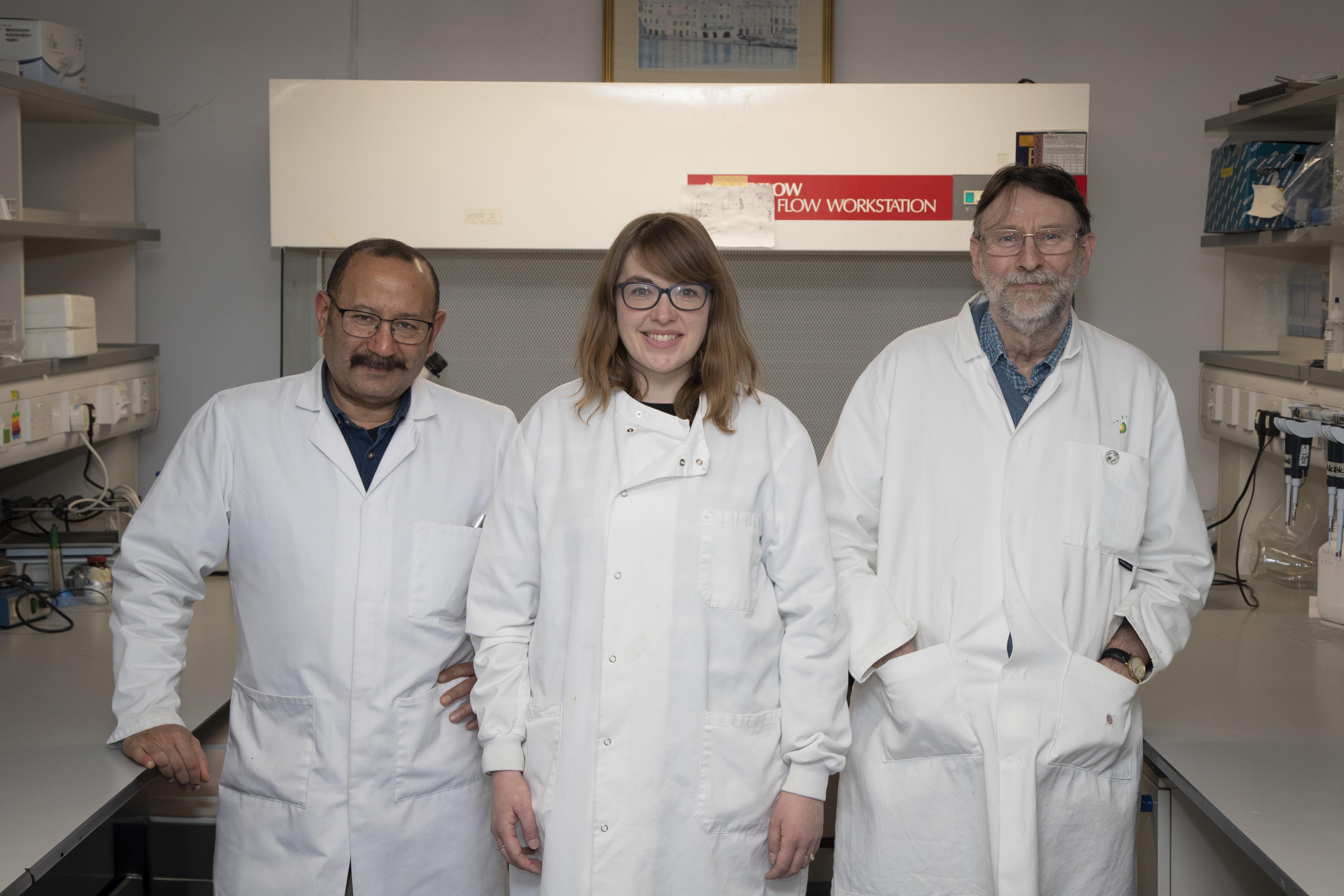
We are delighted to announce that the Jackson Group has been awarded two new grants from Cancer Research UK and the British Heart Foundation. These awards will enable their ground-breaking research targeting voltage-gated sodium channels in a variety of cancers, including breast cancer, as well as pharmacological interrogation of a range of small molecules to inform future drug design and repurposing for cardiac rhythm disorders.
We would also like to congratulate Samantha Salvage on her well-deserved promotion to Senior Research Associate.
CRUK – Early Detection and Diagnosis Primer Award
Samantha Salvage, Tony Jackson and Samir Hamaia, in collaboration with a team at the University of York have been awarded primer funding from CRUK to develop human fragment antibodies targeting a voltage-gated sodium channel as an early oncogenic biomarker in breast cancer. This channel has been identified in a variety of cancers, most notably breast including triple negative breast (TNBC) cancer which lacks the key receptors commonly targeted by therapeutic regimes. They will select a variety of single chain variable fragment antibodies targeting a unique epitope on this biomarker and then screen them to identify the most selective and high affinity binders for development into an early detection and diagnostic tool for screening a variety of cancers including TNBC.
BHF – Project grant
Tony Jackson and Samantha Salvage, in collaboration with Taufiq Rahman in the Department of Pharmacology have been awarded BHF funding to investigate the molecular pharmacology of a family of small molecules indicated in the treatment of a broad range of cardiovascular and neurological indications with ‘off-target’ effects on the cardiac voltage-gated sodium channel, Nav1.5. These effects are contrastingly pro- or anti-arrhythmic depending on the underlying patient history. Therefore, a deeper understanding of the mechanism of action is necessary to tailor a personalised approach achieving the most efficacious outcome and reducing the necessity for trial-and-error in drug prescription for these conditions. Furthermore, structural insights from Cryo-EM will inform future drug design and repurposing.
